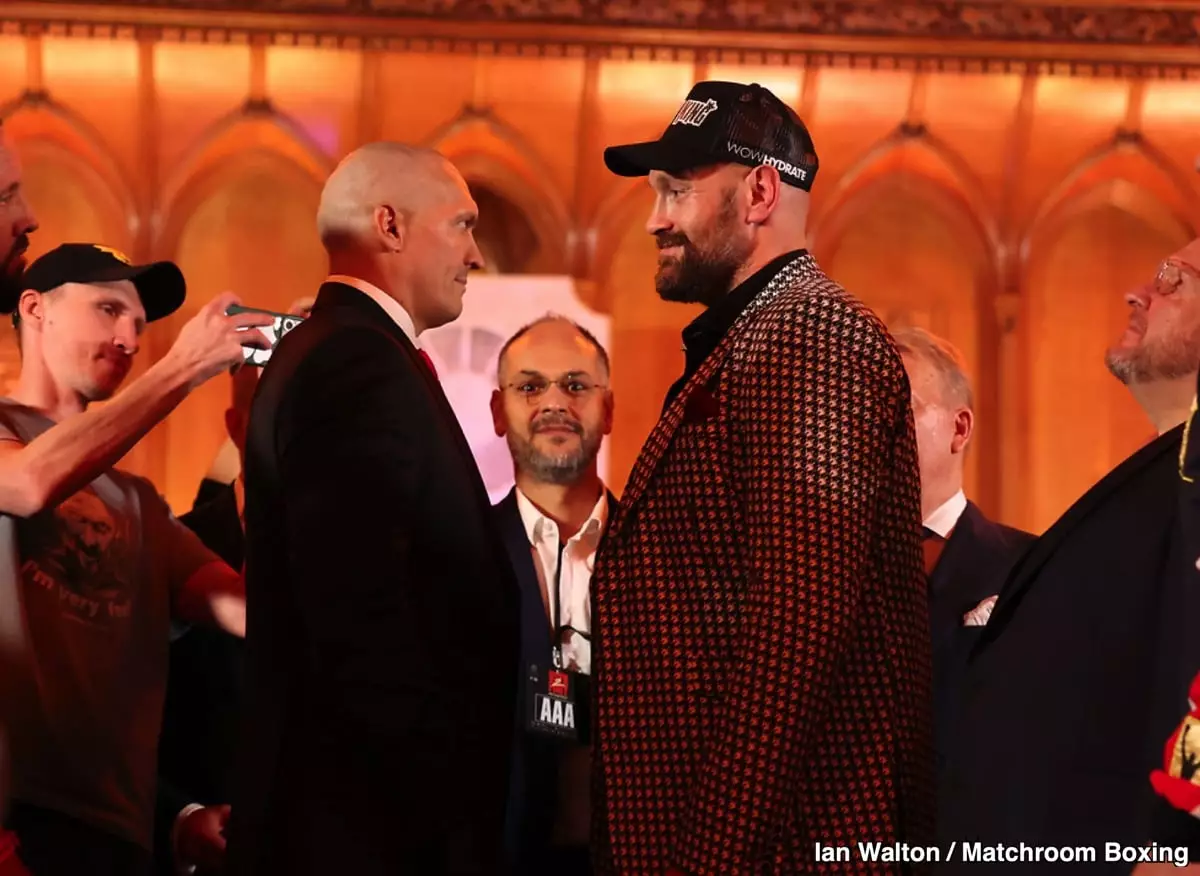The upcoming rematch between Oleksandr Usyk and Tyson Fury is generating significant buzz within the boxing community, as fans and experts alike speculate on the outcome of this monumental clash. Popular boxer-turned-analyst Bernard Hopkins recently shared his thoughts on this much-anticipated fight, providing a deep dive into the stylistic and strategic elements that could dictate its outcome. His views encourage both a closer examination of the fighters’ capabilities and an analysis of the implications for heavyweight boxing moving forward.
In an interview with Fight Hub TV, Hopkins articulated his belief that Usyk will triumph again in the rematch, scheduled for December 21 in Riyadh, Saudi Arabia. Drawing from his extensive background in boxing, Hopkins noted that Usyk’s intelligence in the ring could give him the essential edge over Fury. He encapsulated his stance by suggesting, “the smaller man is the cleverer man,” emphasizing the belief that strategic thinking often surpasses pure physical attributes in determining a fight’s outcome.
Hopkins does not view Usyk’s smaller stature as a disadvantage but rather as an asset. He suggests that Usyk’s size allows him to employ quick, agile tactics that can overwhelm an opponent like Fury, who, despite being imposing, may struggle with the cerebral approach that Usyk brings to the ring. The analysis inspires reflection on how traditional notions of size in boxing are evolving, particularly in the heavyweight division where power is frequently prioritized over technique.
One of the pivotal factors in this rematch is the prospect of Usyk exhausting Fury’s resources by leveraging his superior ring IQ. Hopkins theorizes that as the rounds progress, Fury could find it increasingly difficult to adapt to the shifts in Usyk’s strategy, leading to a scenario where fatigue sets in alongside frustration. This analytical perspective on the dynamic of the match transforms the narrative from merely physical prowess to a battle of wits, a consideration that adds significant depth to the upcoming encounter.
Hopkins goes as far as predicting that Usyk might achieve a victory by way of a late stoppage, not from a knockout punch, but through what he implies as a “mercy call” from the referee. Such a prediction posits a fascinating scenario within the realm of boxing, where the emotional and psychological pressures could force a referee’s hand if Fury finds himself in a perilous position again. This mirrors a shift in boxing philosophy where safety increasingly takes precedence, raising questions about the nature of defeat and the responsibilities of those officiating a fight.
However, the discourse surrounding the rematch cannot ignore Fury’s resilience and knack for devising effective strategies in past fights. Some might argue that Fury, a proud competitor, could learn from the previous bout’s mistakes, coming in with a refined game plan aimed at neutralizing Usyk’s strengths. The narrative of redemption provides an intriguing counterbalance to Hopkins’s sentiments, sparking discussions among fans and analysts about the potential for Fury to reclaim his dominance in the heavyweight scene.
Moreover, the prospect of Fury facing public scrutiny in the event that he struggles against Usyk adds another layer of complexity. The emotional ramifications of a defeat, particularly one predicated on a referee’s intervention, would undoubtedly pose challenges for Fury’s reputation and self-image. The boxing community would keenly observe how a defeat of such magnitude impacts his future bouts and his psyche as a fighter.
As December 21 looms closer, the shadows of speculation surrounding Usyk and Fury continue to grow. Hopkins’s analysis not only highlights the tactical battle, but it also accentuates the broader conversation about the evolution of boxing strategies, the importance of mental fortitude, and the role of officiating in the sport. Whether or not Usyk manages to outwit Fury again remains to be seen, but the anticipation builds, promising a spectacle that fans across the world won’t soon forget. Whether one agrees or disagrees with Hopkins’s insights, they add vibrancy to the already electric narrative of heavyweight boxing.

